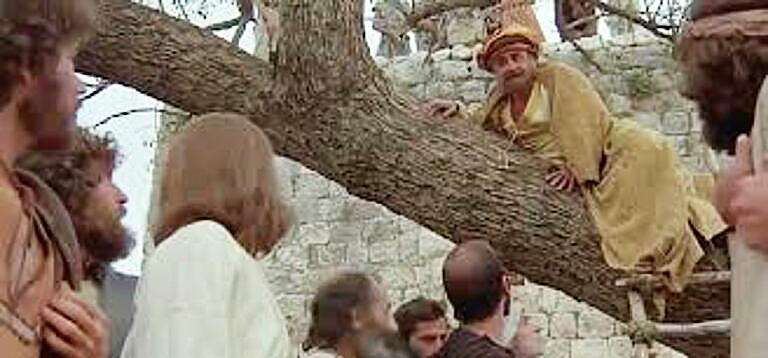
Zacchaeus the tax collector is not the ancient equivalent of modern day IRS or Canada Revenue Agency employees. He was not a civil servant. Ancient Roman tax collectors were individuals who bid for the right to collect taxes in a certain geographic area. This bid represented the tax Rome expected from a given geographic area. The tax collector would then collect funds to pay himself back. Any amount collected above that amount was pure profit, with few limitations. So they not only represented the Roman occupation, but they also profited through abusing and defrauding others.
But Jesus came to bring salvation to all, even the hated tax collector. Through Jesus, this one tax collector, Zacchaeus, experiences a remarkable moment of redemption. Jesus calls him out of the tree he had climbed. Jesus invites himself to Zacchaeus’s home, and Zacchaeus is transformed. He immediately offers to give away half of what he has to the poor, and to repay anyone he has defrauded by a factor of four.
To me, the story of Zacchaeus is a story of learning to live generously. He had far more than he needed. He had much he could share with others. And he recognized that much of that had been earned through fraudulent means.
I believe this story challenges us to consider how we live in our capitalist society. Capitalism isn’t bad. The free market has allowed for much good. But how do we exist within it? Do we hoard all we earn? Are we driven solely by the motivation for our own profit? Or do we seek that balance where we maximize profits, make the world a better place, and share what we have with others?
Stewardship isn’t a euphemism for fundraising in the Church, nor is it restricted to six to eight weeks each fall in the Church year. Stewardship is how we live our lives as Christians, recognizing that this life isn’t ours, but rather God’s. To be a steward is to use this life for the building up of God’s kingdom, one brick at a time. How and what we give to God through the Church is a part of this, but really merely the beginning. How we live our lives is the real heart of stewardship. That might be in a for-profit industry, or not. It might be as a government employee, or a contractor. That might be a soldier, or as an officer. Whatever the setting, let us seek a motivation that isn’t about personal gain and wealth, but rather about making the world a better place.
